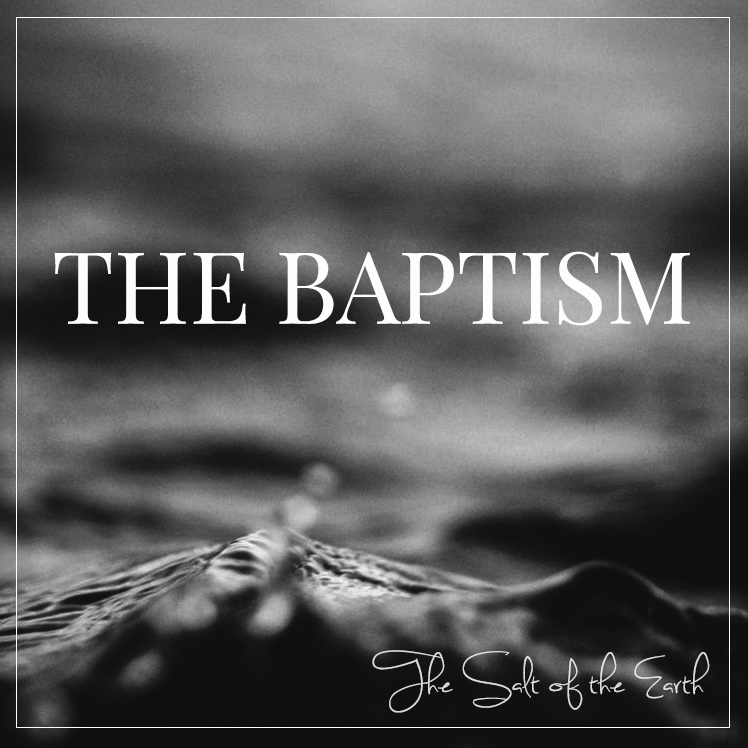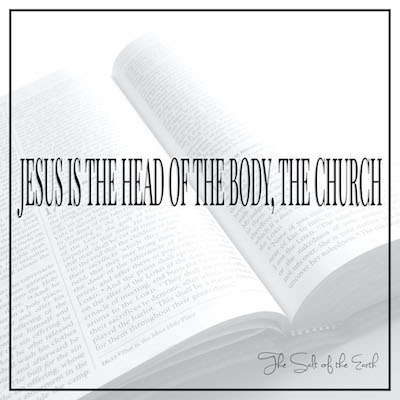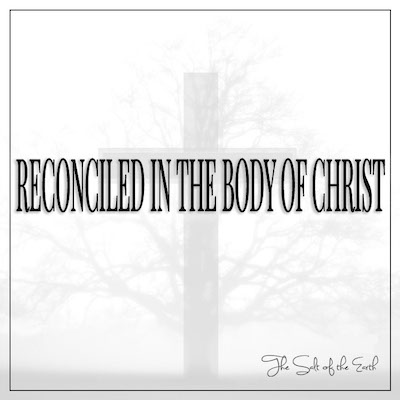In Colossians 2:11-12 we read about the circumcision in Christ and being buried with Christ in baptism and risen with Him through the faith of the operation of God. But what does buried with Christ in baptism and risen with Him through the faith of the operation of God mean according to the Bible?
The circumcision in Christ
In Whom also ye are circumcised with the circumcision made without hands, in putting off the body of the sins of the flesh by the circumcision of Christ: Buried with Him in baptism, wherein also ye are risen with Him through the faith of the operation of God, who hath raised Him from the dead (Kolosse 2:11-12)
The new creation is circumcised in the circumcision of Jesus Christ. This circumcision is not made with hands, a natural circumcision of the foreskin of a male. But this circumcision is a work of the Spirit and takes place by putting off the body of the sinful flesh of males and females. The circumcision in Christ; the putting off the body of the sins of the flesh, takes place by baptism, when the old man (flesh) is buried with Christ and becomes a partaker of His death and the new man (spirit) has risen from the dead through the faith of the operation of God, who has raised Him from the dead.
The old man is buried with Christ in baptism
What shall we say then? Shall we continue in sin, that grace may abound? God forbid. How shall we, that are dead to sin, live any longer therein? Ẹ kò mọ̀, pé gbogbo àwa tí a ti ṣe ìrìbọmi sínú Jésù Kírísítì ni a ti ṣe ìrìbọmi sínú ikú rẹ̀? Nitorina a sin wa pẹlu Rẹ nipa baptisi sinu iku: pé gẹ́gẹ́ bí a ti jí Kristi dìde kúrò nínú òkú nípa ògo Baba, gẹgẹ bẹ̃li awa pẹlu yẹ ki o mã rìn ni titun ìye.
Nítorí bí a bá ti gbìn wá pọ̀ ní àwòrán ikú rẹ̀, awa o si wa pelu li afarawe ajinde Re: Knowing this, that our old man is crucified with Him, that the body of sin might be destroyed, that henceforth we should not serve sin. For he that is dead is freed from sin (Romu 6:1-7)
When you were baptized, you were circumcised in the circumcision of Christ and you have buried your old former life.
Agbalagba, who is carnal and sense-ruled and is dominated by the sinful nature, no longer exists.
Agbalagba, the carnal man, has died in Christ and the new man, the spiritual man, has been risen in Christ from the dead.
Old things have passed away, all things have become new!
You believed in Jesus Christ and decided to tele Jesu and entered a covenant with Him and as a sign of the covenant is the circumcision in Christ.
Just like in the Old Covenant the natural circumcision of the foreskin was a sign of the covenant between God, Abraham, ati his Seed, in the New Covenant, the circumcision by putting off the body of the sins of the flesh through baptism, is a sign of the New Covenant in Christ.
The new man is risen with Christ from the dead
Now if we be dead with Christ, we believe that we shall also live with Him: Knowing that Christ being raised from the dead dieth no more; death hath no more dominion over Him. For in that He died, He died unto sin once: but in that He liveth, He liveth unto God. Likewise reckon ye also yourselves to be dead indeed unto sin, but alive unto God through Jesus Christ our Lord.
Nítorí náà ẹ má ṣe jẹ́ kí ẹ̀ṣẹ̀ jọba nínú ara kíkú yín, ki enyin ki o le ma gboran si ninu ifekufe re. Bẹ́ẹ̀ ni kí ẹ má ṣe fi àwọn ẹ̀yà ara yín sílẹ̀ gẹ́gẹ́ bí ohun èlò àìṣòdodo fún ẹ̀ṣẹ̀: ṣugbọn ẹ fi ara nyin fun Ọlọrun, bí àwọn tí ó wà láàyè nínú òkú, ati awọn ẹya ara nyin bi ohun elo ododo si Ọlọrun. Nítorí ẹ̀ṣẹ̀ kò ní jọba lórí yín: nitori ẹnyin kò si labẹ ofin, sugbon labẹ ore-ọfẹ.
What then? shall we sin, because we are not under the law, sugbon labẹ ore-ọfẹ? God forbid. Ẹ kò mọ̀, ki ẹnyin ki o fi ara nyin jiṣẹ fun lati gbọ, iranṣẹ rẹ̀ li ẹnyin iṣe ti ẹnyin ngbọ́ si; ìbáà jẹ́ ti ẹ̀ṣẹ̀ sí ikú, tabi ti igboran si ododo? (Romu 6:8-16)
Ati pe ti Kristi ba wa ninu rẹ, ara ti kú nitori ẹṣẹ; ṣugbọn Ẹmí ni iye nitori ododo (Romu 8:10)
Nítorí bí ẹ bá ń gbé nípa ti ara, bẹẹni yio kú: ṣugbọn bi ẹnyin ba ti ipa Ẹmí sọ awọn iṣẹ ti ara di oku, ẹnyin o yè. For as many as are led by the Spirit of God, ọmọ Ọlọrun ni wọ́n (Romu 8:13-14)
Jesus Christ has conquered the death! If you have become a new creation in Him, you have been redeemed from the power of sin and death by the putting of the body of the sins of the flesh and you have been given power in Christ to reign over sin and death.
You shall no longer listen to the flesh and be led by the sinful nature of the flesh and fulfill the lusts and desires of the flesh, since the flesh with its sinful nature has died in Christ.
The proof that the flesh has died in Christ
If the flesh with the sinful nature has died in Christ, the flesh shall no longer produce the unrighteous works of the flesh, which are a.o. adultery, àgbèrè, ikọsilẹ, (sexual) uncleanness, effeminacy, inordinate affection (lust), evil concupiscence, covetousness, ibinu, wrath, malice, blasphemy, filthy communication, lying, lasciviousness, ibọriṣa, witchcraft, hatred, variance, emulations, strife, seditions, heresies, envyings, ole jija, murders, drunkenness, revellings (1 Korinti 6:9- 6, Galatia 5:19-21, Kolosse 3:5-10).
If you still do the works of the flesh, you are not circumcised in Christ, because the body of the sins of the flesh has not been put off and is not buried in Christ but is still alive.
The old creation, who belongs to the world and lives in the kingdom of darkness, does these unrighteous works. But if you are born again and you are circumcised in the circumcision of Christ by the putting off the body of sins of the flesh, you shall not do those works anymore, but you shall do righteous works according to the will of God.
You shall listen to the Father and submit yourself to His Word and obey the words of God and apply them into your life, since the Word of God is the truth. You shall walk after the Spirit in the will of God and the Spirit shall reign in your life. Nitorina na, you shall live a holy life unto God and bear the fruit of the Spirit.
‘Jé iyọ̀ ayé’





